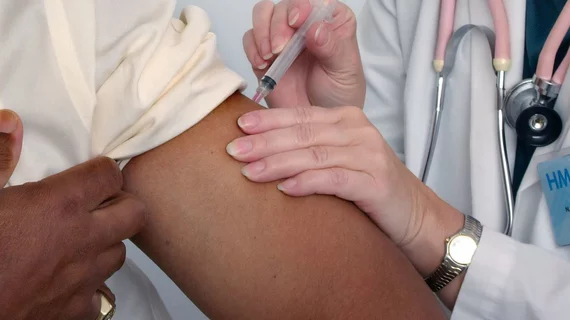If a scientific survey of 788 representative Americans conducted in July is a reliable bellwether, the country could fall short of getting to the 70% vaccination rate needed to achieve community, or “herd,” immunity.
Participants were systematically recruited, and the field included males and females in equal numbers and close to even representation from White (34.0%), Black (33.4%) and Hispanic/Latinx (32.6%) volunteers.
The slots were also carefully divvied up among Democrats, Republicans and Independents.
Of the total sample, 30.7% of respondents indicated they would definitely get immunized when a vaccination became available and 29.2% said they would probably do so. Some 18.8% were non-committal, while 21.3% were in the probably not or definitely not camp.
As close to 70% as that showing would take the turnout—around 69% if the neutral group were to split its difference—it only tells part of the story.
The Pfizer vaccine now being administered is in circulation thanks to an FDA emergency use authorization. Moderna’s formula seems on the cusp of winning the same.
And when asked if they would be willing to receive a vaccine distributed under an EUA, survey respondents as a whole replied with significantly more reticence:
- 10.4% definitely willing
- 14.2% willing
- 22.3% somewhat willing
- 14.3% somewhat unwilling
- 16.4% probably unwilling
- 22.3% definitely unwilling
The study is running open access in the American Journal of Infection Control.
In a news item published this week by Virginia Commonwealth University, lead author Jeanine Guidry, PhD, of that school says the tepid response elicited when EUA was a qualifying factor reflects “concerns and misunderstandings that must be addressed in the months ahead.”
“[T]here are some real fears among the public about the vaccine being developed too quickly,” Guidry says. “In reality, while this particular vaccine was developed rather quickly, the science that has allowed for this to occur has been progressing for the past 10 years. I think we need to make sure people better understand the vaccine development process, and what exactly it means when a vaccine becomes available under emergency use authorization.”

